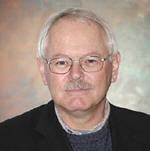
|
Shortly after ordination, doing replacement work in a parish, I found myself in a rectory with a saintly old priest. He was over eighty, nearly blind, but widely sought out and respected, especially as a confessor. One night, alone with him, I asked him this question: "If you had your priesthood to live over again, would you do anything differently? From a man so full of integrity, I had fully expected that there would be no regrets. So his answer surprised me. Yes, he did have a regret, a major one, he said. "If I had my priesthood to do over again, I would be easier on people the next time. I wouldn't be so stingy with God's mercy, with sacraments, with forgiveness. You see what was drilled into me was the phrase: "The truth will set you free,' and I believed that it was my responsibility to challenge people so as to protect something inside of them. That's good. But I fear that I've been too hard on people. They have pain enough without me and the church laying further burdens on them. I should have risked God's mercy more!" I was struck by this because, less than a year before, as I took my final exams in the seminary, one of the priests who examined me, gave me this warning: "Be careful," he said, "never let your feelings get in the way. Don't be soft, that's wrong. Remember, hard as it is, only the truth sets people free!" Sound advice, it would seem, for a young priest. However, as the years of my ministry move towards middle-age, I feel more inclined to the old priest's advice: We need to risk God's mercy more. The place of justice and truth should never be ignored, but we must risk letting the infinite, unbounded, unconditional, undeserved mercy of God flow free. The mercy of God is is as accessible as the nearest water tap, and so we, like Isaiah, must proclaim a mercy that has no price tag: "Come, come without money and without virtue, come everyone, drink freely of "God's mercy!"
What
holds us back? Why are we so hesitant in proclaiming God's
inexhaustible, prodigal, indiscriminate mercy? In doing this we are misguided, less than good shepherds, out of tune with the God that Jesus proclaimed. God's mercy, as Jesus revealed it, embraces indiscriminately, the bad and the good, the undeserving with the deserving, the uninitiated with the initiated. One of the truly startling insights that Jesus gave us is that the mercy of God cannot not go out to everyone. It is always free, undeserved, unconditional, universal in embraced, reaching beyond all religion, custom, rubric, political correctness, mandatory program, ideology, and even beyond sin itself.
For our part then, especially
those of us who are parents, ministers, teachers, catechists, and
elders, we must risk proclaiming the prodigal character of God's mercy.
We must not spend God's mercy, as if it were ours to spend; dole out
God's forgiveness, as if it were a limited commodity; put conditions on
God's love, as if God were a petty tyrant or a political ideology; or
cut off access to God, as if we were the keeper of the heavenly gates.
We aren't. If we tie God's mercy to our own timidity and fear we limit
it to the size of our own minds. A bad game.
Visit
Father Ron Holheiser at his
website
Please use the link at the top
left side of this page
|
|

